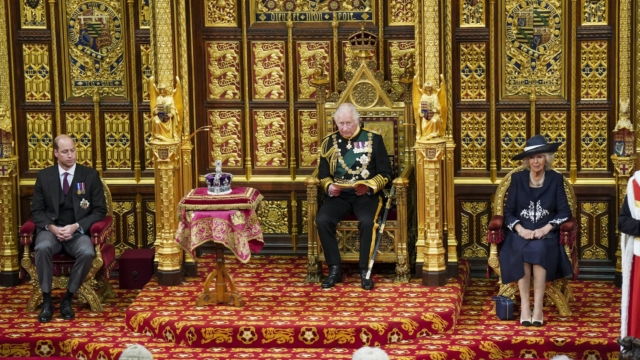Attached a copy of the lobby pack that supports the Queen’s speech. Here are some…
COVID-19 Update 15th September 2020
High Court ruling favours policyholders in FCA business interruption test case
Ruling on a test case presented by the Financial Conduct Authority (FCA), the High Court has ruled that business interruption policies with pandemic or notifiable disease clauses should be read as to cover COVID-19, and that claims should be met “in most cases.” The test case has clarified that the COVID-19 pandemic and the government and public response are considered a single cause of the covered loss, which is a key requirement for claims to be paid. The ruling also notes that each policy needs to be considered against the detailed judgment to work out what it means for that policy.
370,000 policyholders have been identified as holding policies that may be affected by the outcome of the test case. Policyholders with affected claims can expect to hear from their insurer within the next seven days. Read the FCA’s statement on the outcome of the test case.
Consumer tracker report from VisitBritain (Week 14)
Please find attached the latest UK COVID-19 Consumer Tracker Report, also available on VisitBritain.org, for week 14, based on fieldwork from 31 August – 4 September (please note this wave took place before the ‘rule of six’ announcement). The tracker will run fortnightly until February 2021.
Some highlights from the report:
- While just 16% feel ‘the worst has past’, there’s been a significant decline in the proportion of adults who believe ‘the worst is yet to come’ at 41% (versus 46% in wave 13). There continues to be very little expectation that ‘normality’ in our lives will be returning anytime soon, as only 11% are expecting ‘normality’ by December (compared to 18% last wave).
- 27% of adults have taken an overnight trip during July and August, compared to 15% who expected to take a summer staycation when surveyed in June. 61% of these trips were self-defined as holidays, while a third (33%) were VFR, indicating they may have been more spontaneous than other leisure trips.
- The leading holiday destination type for those who took a trip during July-August is ‘countryside or village’. However, if we include VFR and Business trips, then ‘city or large town’ emerges with the highest share overall.
- In-line with intentions, ‘caravan/camping’ was the leading accommodation type people stayed in, closely followed by a ‘private home’ (which could include staying at a friend’s house or renting an Airbnb).
- The South West received the highest share of visitors at 17% of holidays and 15% of all visits during the July-August period.
- 43% of U.K. adults expect to be taking the same number or more domestic short-breaks over the rest of the year compared to normal and 42% express this for holidays respectively.
- Confidence in the ability to take a (hypothetically booked) UK holiday during September is marginally up at 38% (vs 35% last wave) however, this metric doesn’t really start building until the New Year.
- The main reason cited among those lacking confidence is having ‘concerns about catching COVID-19’ but ‘personal finances’ is increasingly becoming a concern (the second and third most cited reason for the autumn and winter periods respectively).
- Of the reassurances people are seeking in order to feel comfortable staying in a hotel, the leading categories are measures to reduce contamination (e.g. hand sanitisers and enhanced cleaning regimes) and measures designed encourage social distancing. Offering free cancellations also continues to remain important, being the third most cited individual reason overall, with 55% of mentions.
- 19% anticipate taking an overnight trip during Sept-Oct, with a further 21% intending to take a trip between November-March.
- Uncertainty is evident as approximately half of Sept-Oct intenders are yet to book, or indeed reach the planning stage of their trip. The levels of planning and booking winter trips are understandably lower at 29% and 19% respectively.
- In terms of region/nation likely to be visited between now and the end of October, the South West continues to dominate with 19% of intenders citing this as their destination, followed by Scotland and Yorkshire & the Humber (both on 12%).
- ‘Countryside or village’ is the leading destination type for summer (35%), autumn (38%) and winter (36%), while intention to travel to a ‘city or large town’ jumps significantly from autumn (21% of intended trips) to winter (34%).
- Almost half of autumn intenders would ideally book their accommodation directly (e.g. with the hotel company or owner). Among winter intenders, the preferred channel to use is an online travel website (e.g. Expedia). This difference is likely to be partly linked to the younger profile of those planning trips during the winter period.
Sports Guidance
The guidance on sporting activities has been updated to take into account how the Rule of Six applies to various activities and to update the guidance on team sports. Here is the Guidance on undertaking sporting activities with other people which includes activities such as horse riding and swimming. Guidance relating to team sports can be found here.
Situation update 15 September 2020
- To see the number of cases of COVID-19 in England and the UK visit the UK COVID-19 dashboard.
- To see the number of cases globally see the World Health Organisation dashboard.


